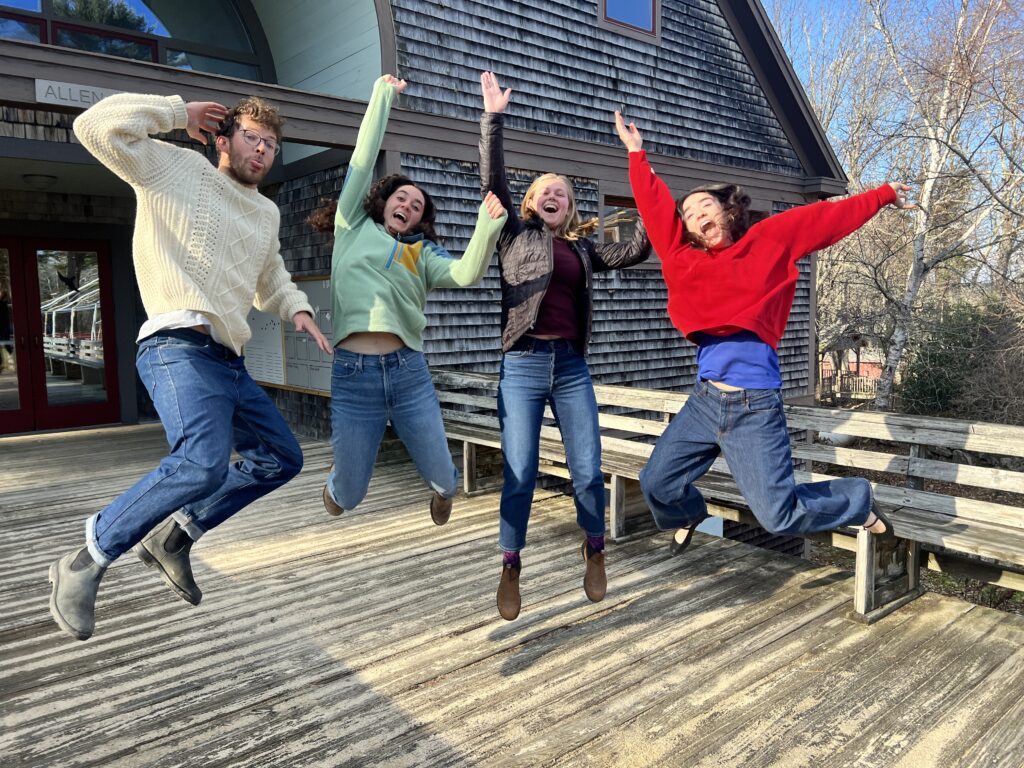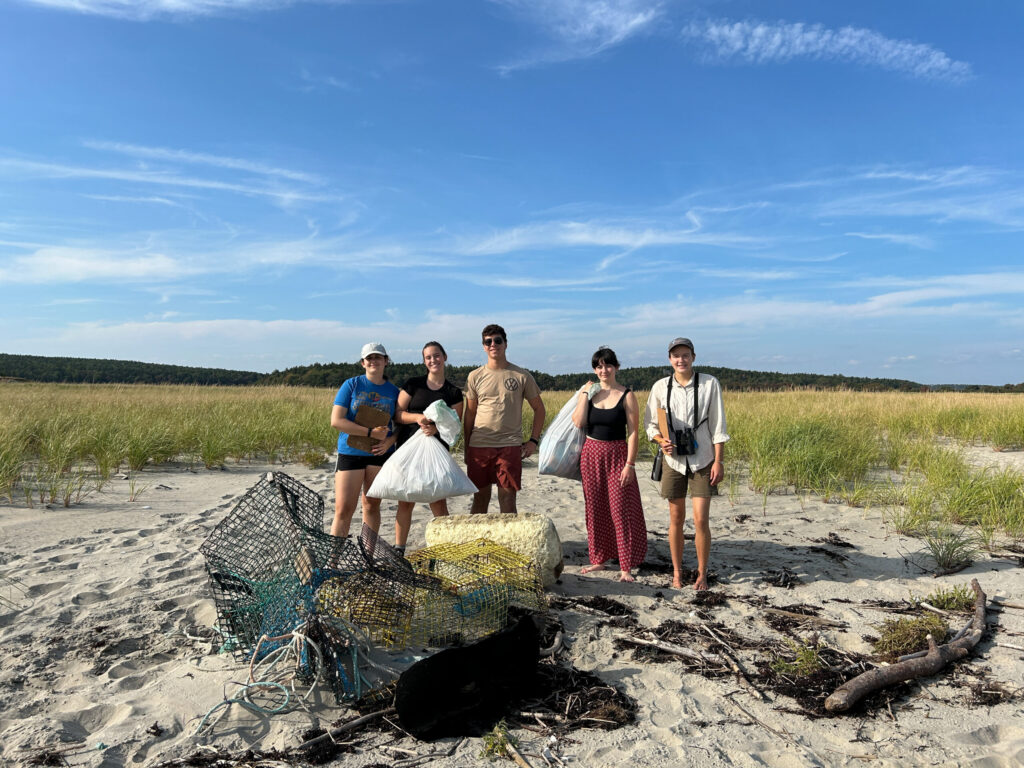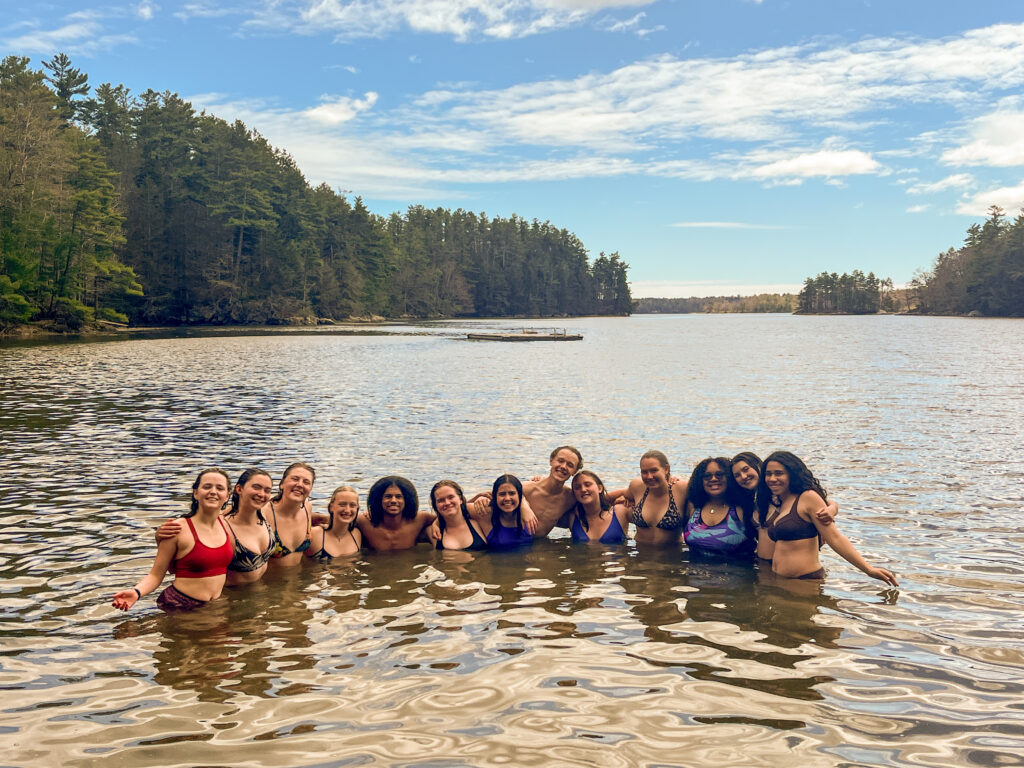About a month before I went to Chewonki, I was having a lot of doubts. Is this actually something that I can do? Will I even feel like I belong there? I thought. I told myself that it would be foolish not to go, especially when I had been given this opportunity in the midst of a global pandemic where I hadn’t learned in person since last March. Even so, I was worried that when I got there, I simply wouldn’t have it in me to do what I needed to do: work fast, adapt to a new routine, meet and adjust to new people, all the time. Was I even sure that I had what it took to do this?
Flash forward to the first Saturday of Chewonki, and I am frozen up in absolute shock after just having hit the ice-cold water of the Chewonki estuary. Everything went so quickly that I didn’t exactly have time to think about my “do I have what it takes” question before I clumsily stumbled down to the dive-off and slipped on the rocks, completely submerging myself. Yup, I was doing the Polar Bear plunge. It was kind of like one of those Looney Tunes cartoons where the coyote falls off a cliff trying to chase the roadrunner and lands flat face-down on the ground, too stupefied to move. Anyways, as I was floating there for a second, contemplating life and why I had chosen to drench myself in the coldest water possible, I heard my other cabin mates getting out of the water and I jolted to the surface, gasping and scrambling up the seaweed-covered boulders to get to the dock. Needless to say, I chose not to do the next Polar Bear plunges after that. I had a good laugh about it at dinner and I still smile at the fact that I did it that one time.
For me, that transition period in the first week or so at Chewonki began with shock (that was the Polar Bear Plunge) and then slowly I came to terms with the fact that this was now my home. I think the coming-to-terms part happened when we had our first Friday night speakers one week later. We all huddled around Campfire Circle and listened to some very animatedly-told origin stories. The sky was much clearer than it is where I live, and you could look up and see the stars. There was a slight chill in the air, and the pine needle canopy above us felt like a blanket covering part of the sky, shielding us from its complete darkness but leaving some starlight peeking through. In the background, I could hear Megan doing all of her silly voices. In that moment, she was putting on what I believe was a Boston accent to voice the beaver in the story. Resting on our wooden bench with my cabinmates and listening to the large fire crackle at our feet was such a feeling of home. I was lulled to sleep by this circle of stories in the woods; by the tiny sparks flying up and away into the universe above us.
One last thing that helped me transition into being here was helping facilitate the school meeting about race. I’m going to be honest: as a mixed-race kid, coming to predominantly-white Chewonki was something that I approached with wariness and caution. These are still feelings that I bring with me every day here in a white space, but just talking about race and working with my co-facilitators made me feel more belonging here. That said, the purpose of me mentioning the meeting is not to excuse Chewonki for its whiteness nor is it to shower this white institution with praise for having the race meeting. Facilitating this meeting made me feel more comfortable here, but I realize that this may not have had the same effect for all nonwhite people at Chewonki. Every nonwhite person has their own experiences, and I can only speak for myself. The bottom line is that there is still a long way to go, and we must continue to have these conversations. On top of that, Chewonki must change from a predominantly-white institution to one that actually reflects America’s racial makeup.
To conclude, I didn’t always know what I was doing when I came here, but it’s still one of the best decisions I’ve ever made. I am not going to say “just go anyways!” to every person who is thinking about applying to Chewonki because everyone is different and saying that to everyone would shut down some legitimate concerns. However, even if you have the slightest thought in the back of your head that you could make it work here, you should give it a shot. Some pretty awesome things can happen.
Anna Windmuller, Alexandria City High School, Alexandria, VA













